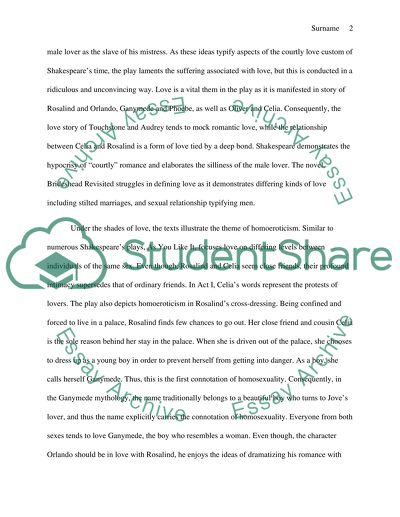Cite this document
(“Compare Brideshead Revisited and As you like it by Shakespeare Book Report/Review”, n.d.)
Compare Brideshead Revisited and As you like it by Shakespeare Book Report/Review. Retrieved from https://studentshare.org/literature/1688295-compare-brideshead-revisited-and-as-you-like-it-by-shakespeare
Compare Brideshead Revisited and As you like it by Shakespeare Book Report/Review. Retrieved from https://studentshare.org/literature/1688295-compare-brideshead-revisited-and-as-you-like-it-by-shakespeare
(Compare Brideshead Revisited and As You Like It by Shakespeare Book Report/Review)
Compare Brideshead Revisited and As You Like It by Shakespeare Book Report/Review. https://studentshare.org/literature/1688295-compare-brideshead-revisited-and-as-you-like-it-by-shakespeare.
Compare Brideshead Revisited and As You Like It by Shakespeare Book Report/Review. https://studentshare.org/literature/1688295-compare-brideshead-revisited-and-as-you-like-it-by-shakespeare.
“Compare Brideshead Revisited and As You Like It by Shakespeare Book Report/Review”, n.d. https://studentshare.org/literature/1688295-compare-brideshead-revisited-and-as-you-like-it-by-shakespeare.


